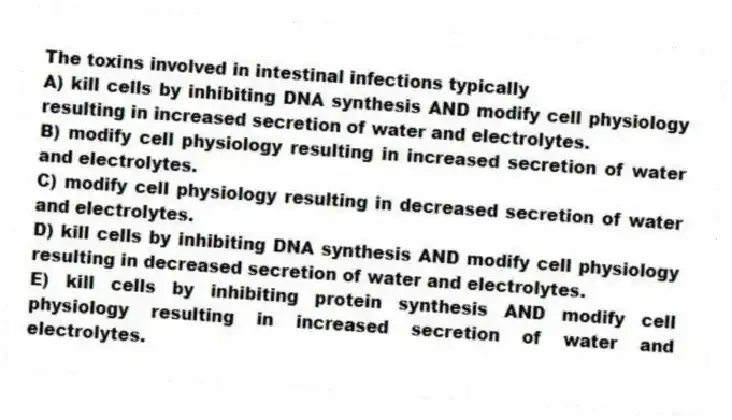
The toxins involved in intestinal infections typically
A) kill cells by inhibiting DNA synthesis AND modify cell physiology resulting in increased secretion of water and electrolytes.
B) modify cell physiology resulting in increased secretion of water and electrolytes.
C) modify cell physiology resulting in decreased secretion of water and electrolytes.
D) kill cells by inhibiting DNA synthesis AND modify cell physiology resulting in decreased secretion of water and electrolytes.
E) kill cells by inhibiting protein synthesis AND modify cell physiology resulting in increased secretion of water and electrolytes.
Correct Answer:
Verified
Q10: Collections of bacteria that adhere to the
Q11: Helicobacter pylori is able to survive in
Q12: Cholera is the classic example of a(n)
A)
Q13: A painful finger infection attributable to herpes
Q14: Helicobacter pylori appears to have some connection
Q16: Mumps is a good candidate for elimination
Q17: This chemical compound, typically added to drinking
Q18: The viral disease that characteristically infects the
Q19: Where in the body does the latent,
Q20: The passage from the mouth to the
Unlock this Answer For Free Now!
View this answer and more for free by performing one of the following actions

Scan the QR code to install the App and get 2 free unlocks

Unlock quizzes for free by uploading documents